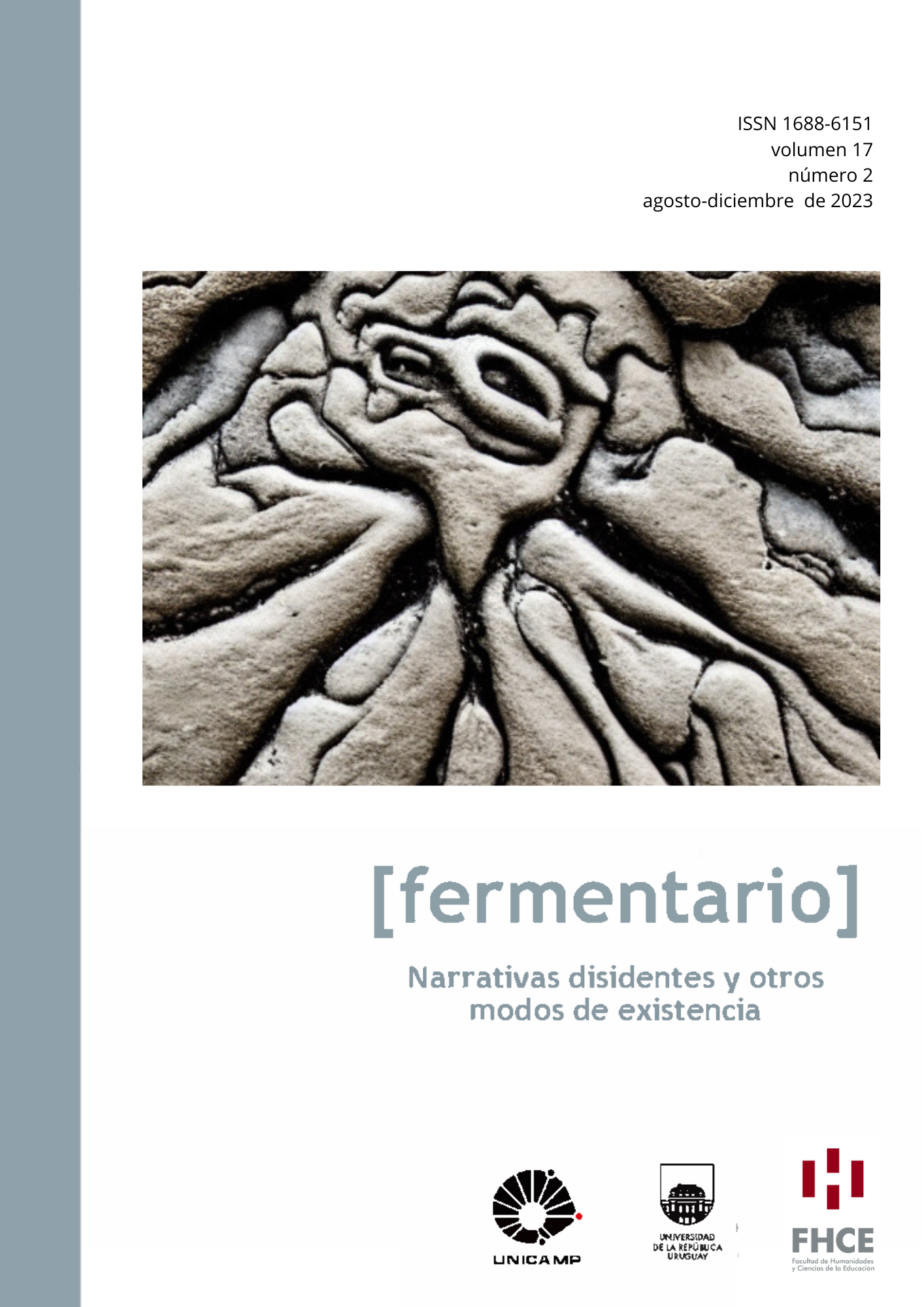A narrative memory as a clue to unfold narratives of Uruguay's recent history
Published 2023-12-27
Keywords
How to Cite
Abstract
The text that follows is part of the pedagogical essay for graduating from the career corresponding to Teacher of Primary Education in Uruguay.
Narrative is used as support, around pedagogical concerns that emerged during daily work in a context of non-formal education with children from 6 to 12 years old. Despite this categorization for the place where the experiences take place, the reflections presented exceed the limits that differentiate the institutional spaces of formal or non-formal education.
In the text, discussions and questions, feelings and opinions arising in a teaching group from the tension -or with it as an excuse- are addressed between morality as an implicit duty in the systems that operate around education and teaching ethics as what a teacher can do based on educational principles and policies combined with her feelings and thoughts about the profession.
The event that kicks off is the decision of a teaching group to address the last civic-military dictatorship in our country as an educational proposal, facing May 20, the date on which the march of silence called by Mothers and Relatives of Uruguayans is commemorated arrested and missing.
From this narrative we seek to reaffirm the defense of the school or the educational spheres as mediating institutions of social processes. Where meaning, identity and citizenship are built. It seeks to reflect that throughout the experiences lived at different times, we teachers question where the need to address the recent past comes from. If it is an exclusive need of ours or if it goes beyond it. The found reflections were clarifying that far from being a practice of submission to a speech. His purposes were emancipatory.
Downloads
References
- ADMINISTRACIÓN NACIONAL DE EDUCACIÓN PÚBLICA (ANEP), Consejo Directivo Central (Codicen), Consejo de
- Educación Inicial y Primaria (CEIP). (2008). Programa de Educación Inicial y Primaria. Año 2008.
- Montevideo: ANEP, Codicen, CEIP.
- ARGENTINA, MINISTERIO DE EDUCACIÓN, CIENCIA Y TECNOLOGÍA (MECYT). (2005). La documentación narrativa de
- experiencias pedagógicas. Una estrategia para la formación de docentes. Buenos Aires: MECYTOEA.
- CULLEN, C. (2004). Perfiles ético-políticos de la educación. Buenos Aires: Paidós.
- CULLEN, C. (2011). La docencia: un compromiso ético-político entre huellas sociohistóricas y horizontes
- emancipadores. Buenos Aires.
- FERNÁNDEZ, M. (2017). Construcción de la ciudadanía con perspectiva en derechos humanos: un aporte
- sudamericano desde la metodología geocultural de Rodolfo Kusch. IXTLI Revista Latinoamericana de
- Filosofía de la Educación, 4(8). Recuperado de http://ixtli.org/revista/index.php/ixtli/article/view/83
- FERREIRA, G., y DÍAZ GENIS, A. (2018). La laicidad como oportunidad para la interculturalidad. Salamanca:
- Universidad de Salamanca.
- GIROUX, H. A. (2001). Cultura, política y práctica educativa. Barcelona: Graó.
- GIROUX, H. A. (2003). Pedagogía y política de la esperanza. Teoría, cultura y enseñanza. Una antología crítica.
- Buenos Aires: Amorrortu.
- JUARROZ, R. (2008). Poesía vertical. Antología. España: Visor Libros.
- MASSCHELEIN, J. (2003). El alumno y la infancia: a propósito de lo pedagógico. Revista Educación y Pedagogía,
- XV(36), 63-68.
- MASSCHELEIN, J., y SIMONS, M. (2014). Defensa de la escuela. Una cuestión pública. Buenos Aires: Miño y
- Dávila.
- MEIRIEU, Ph. (2001). La opción de educar. Ética y pedagogía. Barcelona: Octaedro.
- REYES, R. (1984) El derecho a educar y el derecho a la educación. Montevideo: Monteverde.
- SIEDE, I. (2007). La educación política. Ensayos sobre ética y ciudadanía en la escuela. Buenos Aires: Paidós.
- Documento Final del Sistema Nacional de Formación Docente 2008.

